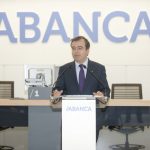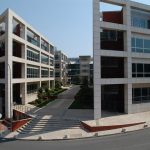The saga of the death of the Banco Espírito Santo (BES) and its rebirth as Novo Banco
The Banco Espírito Santo led by Ricardo Salgado was an outstanding example of cronyism. It supported many clients for personal and political reasons, rather than because their projects were worthwhile.
Text: David Sampson
The Banco Espirito Santo was nationalised in 1975 but on its privatisation 25 years later the Espirito Santo family was able to take back control. The family was then supported by foreign investors such as Credit Agricole but it was always short of capital to finance the projects of both the family and the bank’s clients. In the middle of the post-2008 crisis the government offered financial support to all the Portuguese banks but BES preferred to raise additional capital from its shareholders because it did not want any government checks on its accounts.
The situation got sharply worse in 2013/4 when the Bank of Portugal insisted on a clear division between the bank and the family’s property interests. Again the bank raised more capital but shortly afterwards it had to ask the right wing government for a bail out. The government refused and opted instead to set up a new bank called Novo Banco, to which the viable part of BES was transferred. The toxic assets and all the bond holders were left in the bankrupt old bank.
The cost to the public exchequer was covered up by using the so-called Resolution Fund as the sole shareholder of the new bank and making all the other banks contribute towards the cost over 40 years. Meanwhile the government lent the Fund the money it needed and Novo Banco received an initial injection of new capital amounting to €3.9Bn.
Attempts to sell Novo Banco
The government’s intention was to sell Novo Banco as soon as possible, but as Mario Centeno, the former Finance Minister and now the head of the Bank of Portugal, said in a recent interview, “it was no surprise that the first attempt to sell the bank failed in 2015. Nobody wanted to buy an undercapitalised bank which was full of problematic assets at a price far above the amount which was injected at the moment of resolution………Novo Banco was new but it inherited old problems and it had many complex challenges to deal with. It needed to be made into a good bank.”
In 2017 the government made a second attempt to sell and finally agreed to sell 75% to Lone Star, an American vulture fund which agreed to put an additional €1Bn of extra capital into Novo Banco on the basis that the Resolution Fund would continue to be responsible for contingent losses which have so far amounted to €2,97Bn.
According to Centeno the sale resulted from “a legal requirement and was the way out which was found, though it was difficult and with risks for the Resolution Fund in the context of how the question of contingent capital was handled”. He recognised that the moment to intervene in the bank was when it declined to take up the public capital offered in 2012 . “The financial means were then available, there was the institutional framework in place and everyone in the sector agreed how important it was for (Portugal) to come out of the financial crisis with an effective financial system. But that didn’t happen and when it came to the resolution we had in fact a portfolio of lower quality assets”.
After an open tender and a competitive bidding process Lone Star took control of Novo Banco in October 2017 and started clearing out all the dead wood. It put the bad debts into various packages and offered them for sale on the international market. They were sold to the highest bidder and it is not clear what checks were made on who was buying or on what information, privileged or otherwise, was given to prospective purchasers. The aim was to turn the bank into a saleable asset as soon as possible. After all, the clear aim of funds like Lone Star is to come in, sort out and get out.
Two Parliamentary Inquiries
The first parliamentary inquiry into the collapse of BES during 2014 and 2015 was mostly concerned with investigating the family and financial structure of the Espirito Santos, what caused the collapse of BES and the actions taken or not taken by the Bank of Portugal, as supervisory authority. It examined the already known cases of improper conduct by Ricardo Salgado and others, and heard from those who had complained about his conduct.
The second inquiry followed after lurid reports started to appear in the press that portfolios of thousands of properties were being sold off at bargain prices. In one case it was reported that properties standing in the books of Novo Banco at €631 million were sold for €364 million, and that a large proportion of the price was then lent by the bank to the purchaser under what is known as Vendor Finance.
The inquiry this time was into the losses of Novo Banco which were borne by the Resolution Fund. Between March and June 2021 the Commission heard 56 witnesses. One of the last witnesses was Fernando Ulrich who led the BPI Bank until it was acquired by La Caixa. He thought that any mismanagement by the directors of Novo Banco had led to only minor losses. “My impression,” he said, “is that a very substantial proportion of the €16.4Bn that the combination of BES and Novo Banco needed to cover their losses was due to decisions taken before August 2014”, the month of the resolution of BES and the creation of Novo Banco.
He went on to criticise the supervisory model at the European level because it “obliged both good and bad banks to sell assets in order to achieve lower bad debt ratios,” which meant that outside funds and not the banks profited from any recovery in these assets. The BPI considered making an offer to buy Novo Banco in 2016 but he said “I consider that Novo Banco was well sold.” It was another thing to know if it was sold at the right time and “it would probably have been better if it had not been necessary for the bank to sell assets.” When challenged about the sale of assets António Ramalho, the current CEO of Novo Banco, replied that the sale was designed to reap the benefit of the recovery in the Portuguese real estate market.
Carlos Costa, the former president of the Bank of Portugal, again defended his record against criticisms of the Bank’s failure to act earlier and of the whole resolution process. In his opinion “the cost of taking action was incomparably less than the cost of doing nothing, even leaving out of account the systemic risks, ….The whole process was transparent and competitive… it was like selling a basket of apples where some had gone bad to avoid a situation where the whole basket had gone bad.”
Paying the bill for the failed attempt to take control of the BCP
The media were more interested to see how the main debtors reacted under questioning. A factor they all had in common was a total lack of any sense of responsibility for the debts they owed. The most notorious debtor in Portugal is Joe Berardo who openly laughed at the deputies on the first commission. Through various manipulations his companies control substantial assets such as the Quinta da Bacalhoa wine group, his foundation has a collection of modern art which currently hangs in the Belem Cultural Centre and he lives like a millionaire. Yet his only declared income is a small pension.
Like some of the other debtors he tried to play a major role in Portuguese banking before 2007 and, with the support of Ricardo Salgado among others, he led an attempt to take control of the BCP bank. He borrowed heavily from both the Caixa Geral and BES, giving as security the shares being acquired in the BCP. When the share price collapsed he failed to make any repayments on most of the loans. He was recently arrested and charged with a range of financial crimes, linked to his diminishing the bank’s share of asset charged to them by issuing new shares in the companies involved without the banks’ knowledge.
Berardo was not the only major debtor to have incurred large debts to BES in buying shares in BCP. Bernardo Moniz da Maia’s family company borrowed €368 million mainly for this purpose. He complained that the debt had been sold to a foreign group for 10% of its value and that Novo Banco failed to negotiate properly with him to settle the debt.
The left block deputy Mariana Mortagua accused him of swindling the bank, just like Joe Berardo, in that secretly he increased the capital of the debtor companies in order to reduce the bank’s share of the underlying assets. He indignantly denied the comparison on the grounds that in his case the new shares were issued to outside investors who brought in new capital. In the words of Isabel Oneto, the vice president of the commission, “few things were made clear…. and there were quite a lot of lapses of memory in response the questions he was asked.” In the end the commission voted to send all the details to the public prosecutor.
Not worth listening to
Another debtor had clearly been funded by Ricardo Salgado not only to help BES maintain its position in Portugal Telecom but also to build a media group which would support BES. Ongoing was headed by Nuno Vasconcellos, whose family had many connections in Portuguese media and business. He appeared live from Brazil but the president of the commission Fernando Negrão soon terminated the hearing on the grounds that Vasconcellos “was systematically and without any plausible reasons denying he owed anything to the bank”.
In a later session Rafael Mora, a former colleague of Vasconcellos, accused him of using an offshore company to dilute the bank’s security for its loans. He had already reported him for this to the police in 2018. Asked if Vasconcellos had told any lies to the commission he said, “it would be better to ask if he said anything at all truthful.”
The family never forgets those who help it
The most revealing statement to the commission came from João Gama Leão of Prebuild. “I remember a lunch I had with Ricardo Salgado, after I had invested in the Espirito Santo Group. He sat me at the head of the table and said to me that the family never forgets those who help it. I accept the title of a major debtor. I do not accept that you compare me with the crappy elite which has appeared here. They got into debt to buy shares, to manipulate the market and to serve the interests of Ricardo Salgado.”
The final high profile debtor was Luis Filipe Vieira, the president of Benfica football club. He is a self made man who has thrived on the connections in Portugal between the worlds of business and football.
His company Promovalor which had property developments in the Algarve was billed as the second biggest debtor of Novo Banco. Questioned about a report to the bank that his only asset to support the personal guarantees he had given was a barn he said “I have other assets, I have a good pension, I live well.”
Soon after his hearing Vieira was arrested together with his son, his lawyer and his well known business associate Jose Antonio dos Santos the founder of the Portugal’s largest agricultural group, who is known as the Chicken King. The cause of his arrest were dealings around a debt of €54.3 million owed to Novo Banco by his company Imosteps in relation to the purchase from a company linked to BES, of two cemeteries for development in Rio de Janeiro. The debt was sold by Novo Banco to a fund for €6.6 million and it was later bought by dos Santos for €9.1 million. Meanwhile Novo Banco received compensation of €45.6 million from the Resolution Fund for its loss on the sale.
Adding insult to injury
It became clear at the hearings that once Novo Banco was sold to Lone Star there was little anyone could do to reduce the total cost to the Resolution Fund, and behind it the Portuguese taxpayer. One way or the other the result of the government’s decision not to bail out BES nor nationalise it but to try to create a new bank on the ruins of the old was that the state had to pick up the full tab for the losses already incurred before Novo Banco came into existence.
During the course of the commission hearings the investigating judge into the accusations against Ricardo Salgado, former Prime Minister José Socrates and a host of leading business men ordered that most of the cases be dismissed. The reasons were all technical. Either the cases were statute barred through lapse of time or no link had been proved between the money received by the accused from the Espirito Santo slush fund and the actions they later took.
The underlying problems of Portugal have been painfully exposed. A business elite makes money by manoeuvring to get as much as it can from the government and the banks, and the legal system is beset by rules and technicalities that allow wrongdoers to get away without penalty. Parliament has tried for two decades to legislate to punish unjustified enrichment but there are always legal, practical and political objections. But it is not just bankers who support their friends. The practice of ‘cunhas’ and little favours for one’s friends is common throughout life in Portugal. Without such favours projects can be delayed for years. Ministers are seen as out to get what they can personally from being in office and the motives of the government are always viewed with suspicion.
We must be concerned about who will manage and be responsible for the new large swathe of money coming to Portugal from the EU Recuperation Fund. There are honest politicians and business people in Portugal and I hope that the right ones are found to help the country recover from the pandemic. Meanwhile Portugal is a peaceful and friendly country which justifiably continues to attract many young entrepreneurs and investors as well as property developers.
The real estate market and the banks
For 20 years I was intimately involved in the world of commercial property in Portugal both as a lawyer and magazine editor. For most of that time up to 2007 I was a regular at the annual MIPIM conference in Cannes which was attended by most of the leading property companies in Portugal.
Fast forward 14 years to 2021 and apart from the Portuguese branches of the international real estate agencies barely any of the companies who were developing property in Portugal prior to 2007 have survived. The savage measures imposed by the troika on the Portuguese economy in the years following the financial crisis of 2008 bankrupted almost all the local developers and forced the foreign ones to withdraw from the Portuguese market.
We are now living with the results. Firstly a new wave of French and other international developers have entered the market since 2014. They picked up properties at bargain prices and have come to dominate the market. The best example is Claude Berda’s company Vanguard Properties which has partnered the Amorim group in buying the Comporta resort.
The second result of the 2008 crisis was that the Portuguese banks had an enormous overhang of bad debts many of which were related to failed real estate projects. They were also affected by the chronic shortage of private capital in Portugal, which meant that all the local developers needed a large amount of bank support to finance any development.
Two other factors had a negative effect on the Portuguese real estate market. Firstly it has always been illiquid and there is no tradition of banks selling properties at a loss. Rather than selling a mortgaged property at a loss, a bank would arrange for its purchase by a fund which it controlled at a price sufficient to pay off the bank’s loan. These properties overhung the market and slowed down its recovery. Second, bank directors would favour developers who were their friends or clients. Loans were often not made on the basis of the viability of a project but for political or other reasons, not to mention bribery and corruption.










